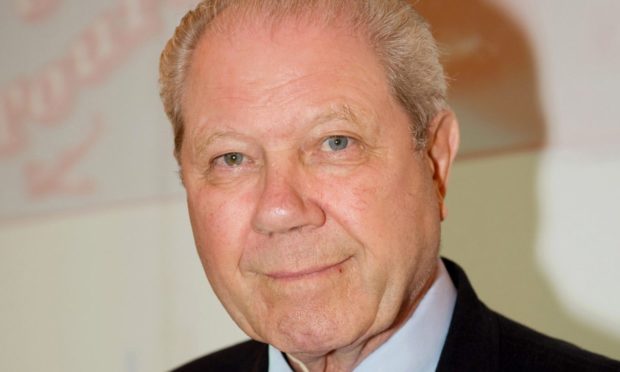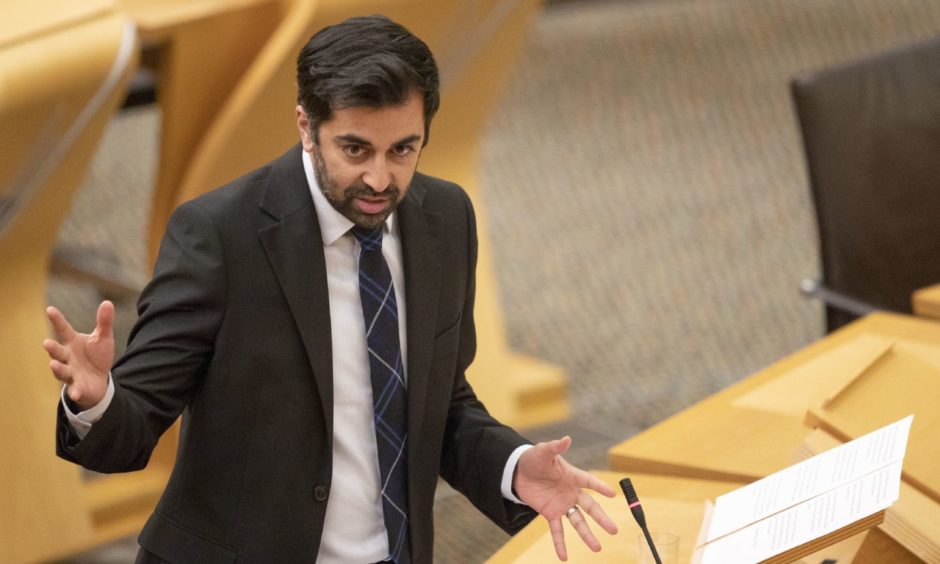A veteran SNP politician says he considers the hate crime proposals to be “one of the most pernicious and dangerous pieces of legislation ever produced by any government in modern times in any part of the United Kingdom”.
Jim Sillars, former deputy leader of the party, claims the new legislation, which was backed by MSPs on Thursday, would “ultimately be tested in the forensic forum of a court”.
The Hate Crime and Public Order (Scotland) Bill has generated “heated debate” since it was introduced to Holyrood in April, with opponents claiming it could have a “chilling effect” on freedom of speech.
Speaking after the vote, which saw the bill passed 82 to 32, ,Mr Sillars said: “The new legislation is going to open up lots of people – who do not intend to direct hate at anyone – to find themselves being reported to the police for hate crimes.
“And there will be lots of malicious and vexatious complaints because most people are not lawyers and will tend to define hate crime as they see it, and not necessarily as the law sees it.”
The bill would consolidate a number of laws into one piece of legislation, but would also add the offence of “stirring up hatred” on the grounds of religion, sexual orientation, age, disability and transgender identity.
Justice Secretary Humza Yousaf, who led the bill’s passage through parliament, said the legislation strikes the right balance between hate crime and freedom of speech.
He argued that the legislation “will strengthen the law to tackle hate crime in a way that protects the rights of everyone to live their lives free of harm, while protecting the rights to freedom of expression”.
‘Very badly flawed’
Mr Sillars, who was deputy leader of the SNP between 1991 and 1992, argues the bill will “ultimately be tested in court”.
He added: “I believe it is very badly flawed legislation.
“And so the definitions that Humza Yousaf has insisted on putting into this bill will be tested in the forensic forum of a court, and I believe that’s when, suddenly, all will be revealed about its flaws.
“The next campaign will be to repeal certain sections of this Act as being against the public interest.
“What is the fundamental public interest in a free democracy? The ability to think what you like and say what you like.”
However, speaking in parliament, the justice secretary sought to provide assurance “to those who think they may accidentally somehow fall foul of the law” due to stating personal opinions – which may be offensive to some – in a “robust manner”.
Instead, an offence will only be committed if behaviour is found to be “threatening or abusive by a reasonable person and it was intended to stir up hatred”.
‘Dark day’
Jamie Gillies, spokesman for the Free to Disagree campaign, said the passage of the bill marks a “dark day for freedom of expression in Scotland”.
He claimed that the Hate Crime Bill is “another Offensive Behaviour at Football Act” and “won’t work well in practice and and it will have to be revisited down the line”.
The football bigotry law was passed by the then-majority SNP government in 2011 in a bid to crack down on sectarianism but it was eventually repealed by the Scottish Parliament after all four opposition parties said it unfairly targets football fans and had failed to tackle the problem.
On the hate crime legislation, Mr Gillies added: “That is surely not something that any parliamentarian should have entertained.”

